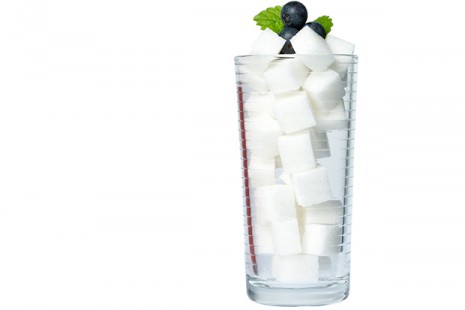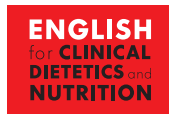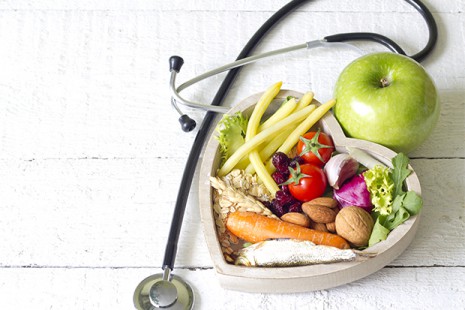
W świadomości zwykłych obywateli, ale też dietetyków, trenerów i lekarzy, funkcjonuje powszechny pogląd, że główną przyczyną odkładania się tłuszczu są węglowodany – szczególnie cukier oraz rafinowane produkty węglowodanowe (np. biały chleb).

Część tekstu pochodzi z 7 modułu (Diet and longevity) kursu e-learningowego "English for Clinical Dietetics and Nutrition".
Czarnym kolorem oznaczono: useful words and expresions, niebieskim kolorem oznaczono: useful words with prepositions, zielonym kolorem oznaczono: useful collocations.
These fat-soluble antioxidant compounds: Α-tocopherol (present in wheat germ oil, sunflower, and safflower oils) and γ-Tocopherol (occurring in corn oil, soybean oil, margarine, and dressings) possess powerful anti-inflammatory, neuroprotective, cholesterol-lowering and anti-cancer qualities.
The adverse effect of eating food high in Vitamin E is not found, however high doses of Α-tocopherol supplement can cause hemorrhage and troubles with blood coagulation.
A lipid-soluble endogenous substance resembling vitamin that extracts energy from food. It is claimed to be beneficial in preventing cancer, increasing longevity and revitalizing the immune system by reducing the oxidative stress. It also has neuroprotective properties - Q10 may be a useful treatment for neurodegenerative diseases.
Coenzyme Q-10 production decreases with ageing in humans. To increase its plasma concentration it is recommended to implement the oral supplementation and increase its intake from foods.
The heartiest sources of coenzyme Q-10 are fatty fish, beef and poultry, peanuts, pistachios.
GLOSSARY
| longevity - długowieczność | to lower - obniżyć |
| free radicals – wolne rodniki | beta-carotene - beta karoten |
| mitochondria - mitochondria | L-ascorbic acid – kwas askorbinowy |
| evince - przejawiać, świadczyć | parsley - pietruszka |
| oxidative stress - stres oksydacyjny | bell pepper - papryka |
| nitrosative stress - stres nitrozacyjny | lesion – lezja (obrażenie, uszkodzenie) |
| oxidation – oksydacja, utlenianie | cornea - rógówka |
| endogenous - endogenny | tendons - ścięgna |
| nitric oxide – tlenek azotu | ligaments - wiązadła |
| reproductive - rozrodczy | cartilages - chrząstki |
| oxygen species – formy tlenu | trout - pstrąg |
| reactive nitrogen species - reaktywne formy azotu | shellfish – skorupiaki |
| molecular - cząsteczkowy, molekularny | mussels - małże |
| derive from – pochodzić od | cognitive - kognitywny |
| tocopherols - tokoferole | safflower - krokosz barwierski |
| tocotrienols - tokotrienole | dressing – sos, dressing |
| polyphenols - polifenole | dose - dawka |
| thiols - tiole | hemorrhage - krwotok |
| glutathione - glutation | ubiquinone (coenzyme Q-10) - ubichinon |
| ubiquinol-10 - ubichinol | resembling - przypominać |
| carotenoids - karotenoidy | revitalizing - rewitalizować, ożywiać |
| retinol - retinol | neurodegenerative - neurodegeneracyjny |
| chromatic - chromatyczny, barwny | heartiest – najbardziej obfity, krzepki |
| abusing - nadużywać | poultry - drób |
| carotene - karoten |
Put the following words and expressions into the proper gaps to make understandable sentences. (Ćwiczenie wraz z odpowiedziami dostępne w załącznikach do pobania)
ripeness polyphenols extract oxidative stress prebiotics cartilage genitourinary cholesterol-lowering

W świadomości zwykłych obywateli, ale też dietetyków, trenerów i lekarzy, funkcjonuje powszechny pogląd, że główną przyczyną odkładania się tłuszczu są węglowodany – szczególnie cukier oraz rafinowane produkty węglowodanowe (np. biały chleb).

Mimo intensywnego rozwoju medycyny i odpowiedniej prewencji choroby układu krążenia nadal są główną przyczyną zgonów na całym świecie. W dalszym ciągu rocznie więcej ludzi umiera z powodu CHUK niż z jakiejkolwiek innej przyczyny.

Schorzenia tarczycy należą do często występujących chorób. Jak podaje National Institute of Health and Food, w samych Stanach Zjednoczonych obserwuje się, że w całej populacji nadczynność tarczycy pojawia się u około 1,2%, a niedoczynność tego narządu u około 2%.